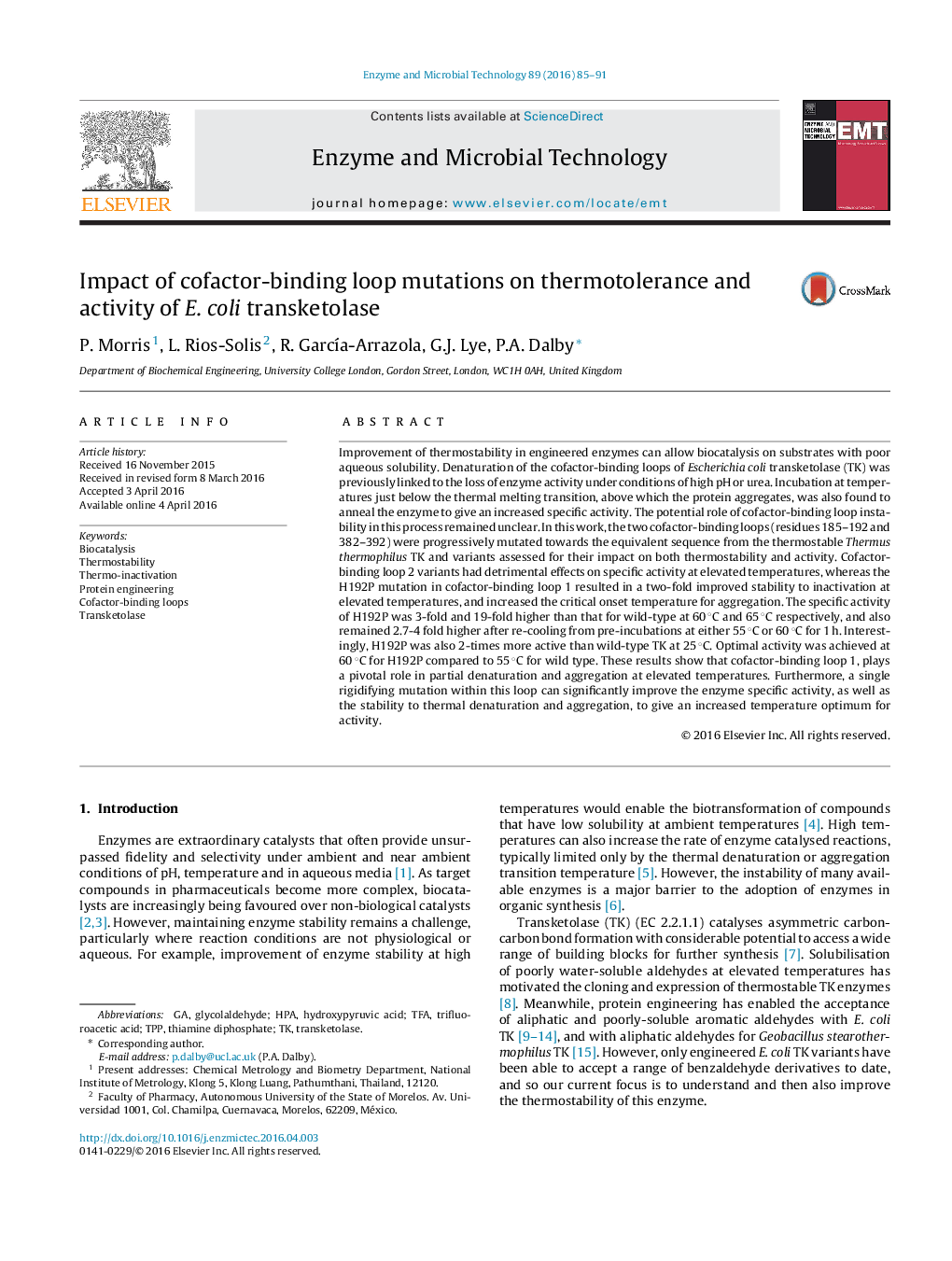| کد مقاله | کد نشریه | سال انتشار | مقاله انگلیسی | نسخه تمام متن |
|---|---|---|---|---|
| 16788 | 42612 | 2016 | 7 صفحه PDF | دانلود رایگان |

• Transketolase variants with increased thermostability have been obtained by engineering cofactor-binding loops towards those found in a thermophilic homologue.
• Thermal annealing behaviour is enhanced by mutations in one loop, and abolished by mutations in the second loop.
• One thermostabilising mutation, H192P, also doubled the specific activity at 25 °C.
• The thermostabilising mutant, H192P, was also more active than wild-type transketolase, in reactions at elevated temperatures.
• The variants confirmed the key role of the cofactor-binding loops in transketolase aggregation at elevated temperatures.
Improvement of thermostability in engineered enzymes can allow biocatalysis on substrates with poor aqueous solubility. Denaturation of the cofactor-binding loops of Escherichia coli transketolase (TK) was previously linked to the loss of enzyme activity under conditions of high pH or urea. Incubation at temperatures just below the thermal melting transition, above which the protein aggregates, was also found to anneal the enzyme to give an increased specific activity. The potential role of cofactor-binding loop instability in this process remained unclear. In this work, the two cofactor-binding loops (residues 185–192 and 382–392) were progressively mutated towards the equivalent sequence from the thermostable Thermus thermophilus TK and variants assessed for their impact on both thermostability and activity. Cofactor-binding loop 2 variants had detrimental effects on specific activity at elevated temperatures, whereas the H192P mutation in cofactor-binding loop 1 resulted in a two-fold improved stability to inactivation at elevated temperatures, and increased the critical onset temperature for aggregation. The specific activity of H192P was 3-fold and 19-fold higher than that for wild-type at 60 °C and 65 °C respectively, and also remained 2.7-4 fold higher after re-cooling from pre-incubations at either 55 °C or 60 °C for 1 h. Interestingly, H192P was also 2-times more active than wild-type TK at 25 °C. Optimal activity was achieved at 60 °C for H192P compared to 55 °C for wild type. These results show that cofactor-binding loop 1, plays a pivotal role in partial denaturation and aggregation at elevated temperatures. Furthermore, a single rigidifying mutation within this loop can significantly improve the enzyme specific activity, as well as the stability to thermal denaturation and aggregation, to give an increased temperature optimum for activity.
Figure optionsDownload as PowerPoint slide
Journal: Enzyme and Microbial Technology - Volume 89, July 2016, Pages 85–91